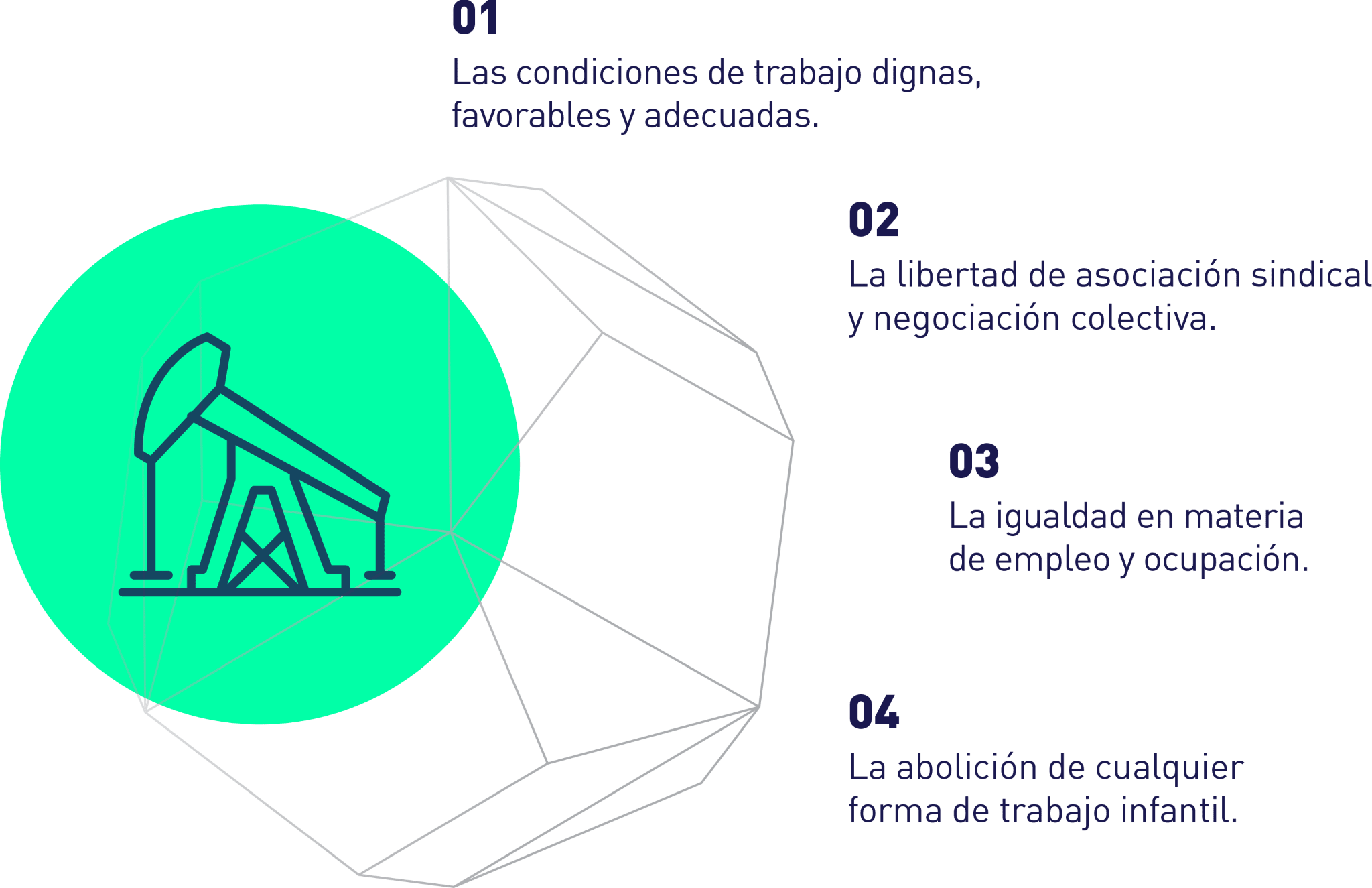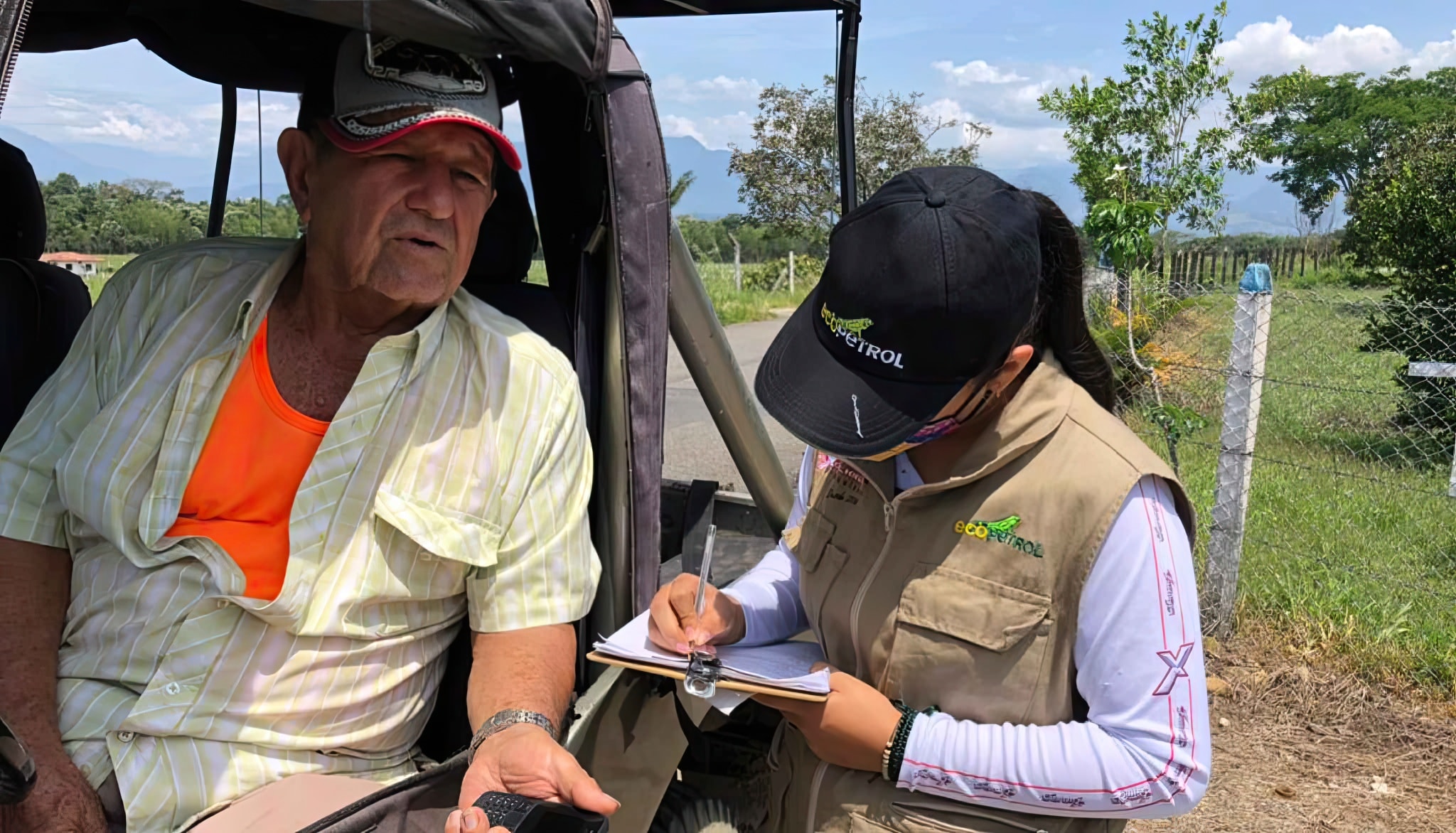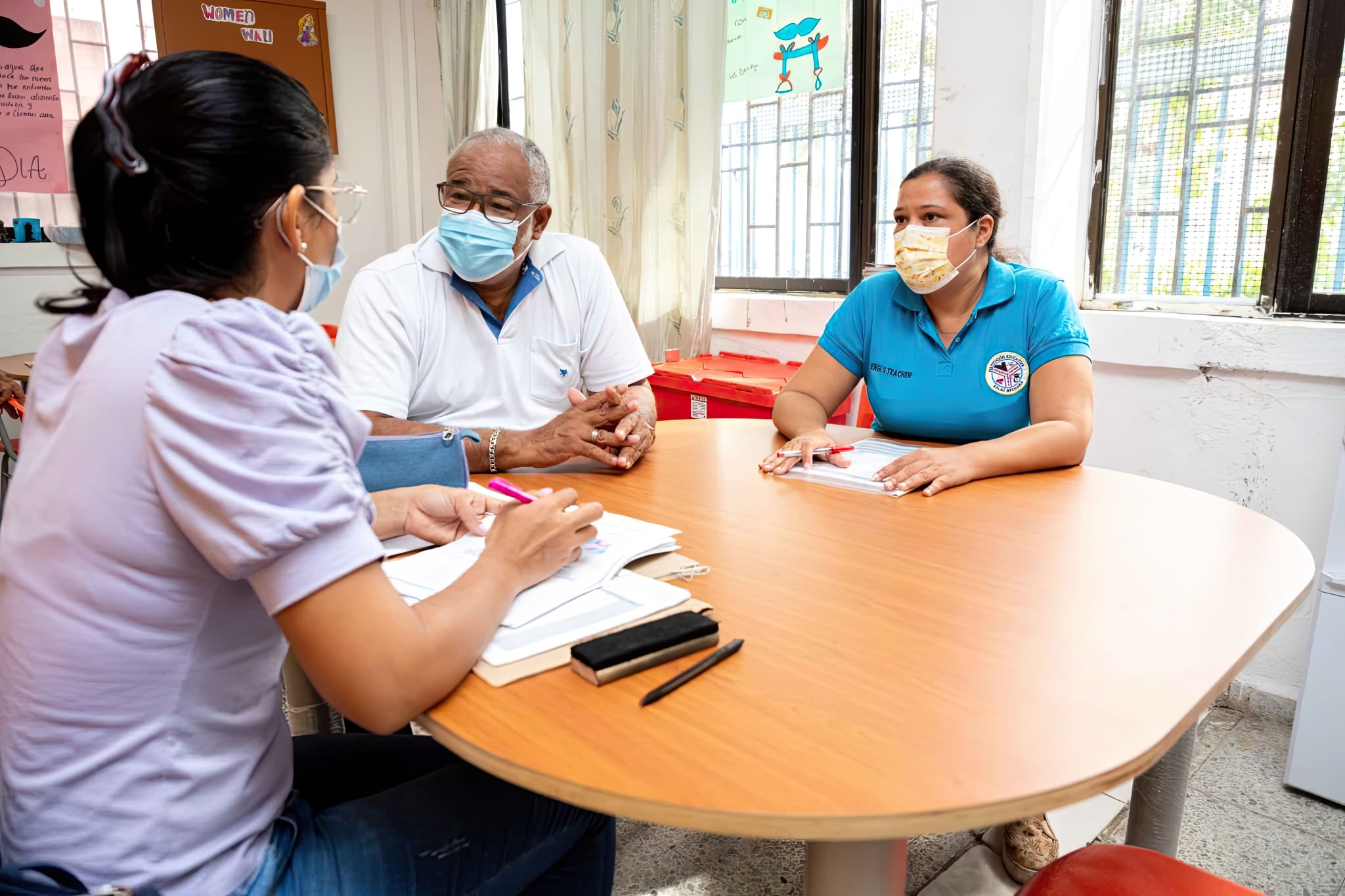Security and Human Rights
(GRI 410-1, 11-18-1, 11-18-2) (SASB EM-EP-210a.3)
Ecopetrol has stressed its commitment to the Voluntary Principles on Security and Human Rights (PVSDH) by adopting a management approach including the following aspects:
Risk assessment
Ecopetrol is aware that the management of security can generate impacts on the territories and on rightsholders. To prevent this risk, the Company applies Human Rights standards associated with security issues at three (3) levels: risk analysis identifying the impacts on Human Rights; transparent standards for engaging with public forces and private security companies; and a robust system to address complaints.
Interactions with public security
the Company signs collaboration agreements with public forces, incorporating the Human Rights clause and emphasizing the respect for the legal and conventional terms of human rights. Also, the Company guarantees independence from the decisions adopted by the public forces.
Interactions with private security
Ecopetrol signs contracts with private security companies, which contain a common clause based on the Voluntary Principles on Security and Human Rights (PVSDH) pertaining to private security.
Supervision of security providers
to ensure that they comply with their obligation to provide security services in a manner consistent with the rules of conduct set forth by Ecopetrol: the Company exerts risk control to monitor
security providers and ensure that they comply with their obligation to provide security services
in accordance with the rules of conduct described in Ecopetrol’s Code of Ethics. These providers must submit a semi-annual report accounting for their follow-up on Human Rights clauses.
Grievance mechanisms that protect security forces
Ecopetrol has established the OPC to receive Petitions, Complaints, Claims, and Suggestions (PQRS) from all Stakeholder Groups. Also, periodic meetings are held with the security forces to review and update the analysis of security and human rights risks and exchange information on the concerns submitted through the grievance mechanism on human rights impacts in the territories.
Audit and evaluation of security contractors
as part of all contract clauses, Ecopetrol lays down control mechanisms and performance measurements in all contractual activities, including human rights. Every six months, Ecopetrol reviews all non-compliances with Human Rights clauses. Training is also provided to strengthen capabilities and ensure joint processes. The contracts incorporate an ethics, transparency, and compliance clause, empowering Ecopetrol to conduct administrative, financial, operating, and compliance audits to verify compliance with anti-bribery laws and the guidelines contained in the Company’s Code of Ethics and Conduct.
Ecopetrol sets training requirements applicable to direct workers and organizations that provide security personnel. Below is the information on the Company’s security personnel, both directly hired and from third-party organizations, who have received training in specific Human Rights policies or procedures:
| Human Rights Training | Unit of measurement | 2022 |
|---|---|---|
| Number of security workers who have received formal training in specific human rights policies or procedures | # | 2,609 |
| Total number of security workers | # | 3,314 |
| Percentage of security personnel that has received formal training in specific human rights policies or procedures | % | 78.7 |
(GRI 412-2, 11-10-9) (WEF EM-EP-210a.3)
Promoting Human Rights in the Supply Chain
Ecopetrol is aware that its due diligence to meet its responsibility of respecting and promoting human rights must be ensured, not only within the framework of its operations but also in its value chain.
For this reason, the Company sets the labor standards to be met by all suppliers with their workers when conducting activities for Ecopetrol, by means of its internal labor regulations applicable to the contracted activities. This policy evinces the Company’s commitment to respect all human rights, with special emphasis on the supply chain:
In addition, there are contractual Human Rights clauses to ensure respect for and promote Human Rights, as well as to conduct performance evaluations of the contractors, which involve environmental, social, and labor aspects related to Human Rights.
Training in Human Rights was provided to more than 1,100 suppliers, emphasizing on Human Rights due diligence, respect for social leaders, and Ecopetrol’s commitment to respect Human Rights.
Human rights communication pieces were sent to all suppliers, also including the relationship between human rights and companies and Human Rights due diligence.
(GRI 412-3) (WEF 22E)
| Agreements containing human rights clauses | Unit of measurement | 2022 |
|---|---|---|
| Number of significant investment agreements and contracts containing human rights clauses or subject to human rights evaluations | # | 3,244 |
| Total number of significant investment agreements and contracts | # | 3,246 |
| Percentage of significant investment agreements and contracts containing human rights clauses or subject to human rights evaluations. | % | 99.94% |
Note: Ecopetrol considers two (2) determinants to define significant investment agreements and contracts containing human rights clauses:
(i) Arising cooperation settlements or agreements managed by the Vice Presidency of Sustainable Development, entered into with the purpose of protecting the critical infrastructure of the Company, which are also representative in eventual positive or negative risks or impacts associated with human rights and security.
(ii) Service contracts (goods and services) signed as of 2016 and valid as of December 31, 2022, managed by the Vice Presidency of Supply, subject to the Human Rights and Corporate Social Responsibility annex.
Roadmap
Local Development
Exceptional
material element
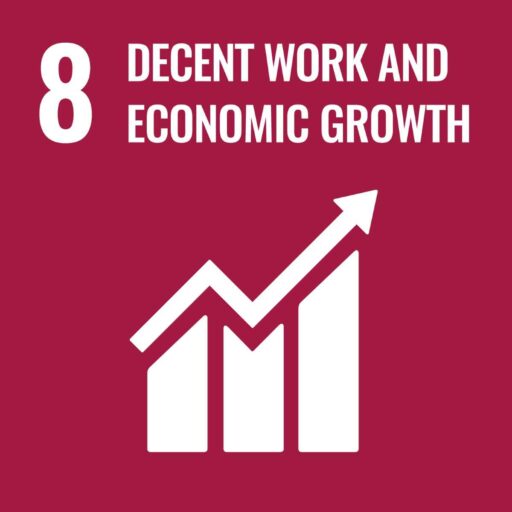
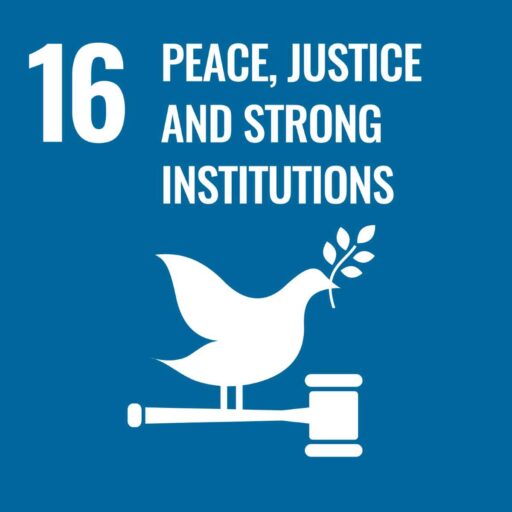
| Impacted stakeholder groups | Areas managing the impacts: | Ecopetrol business line or segments generating the highest impact |
|---|---|---|
| Society, Community, and local State | VAB | Upstream |
| National state | VDS | Midstream |
| VPU | Downstream | |
| VRP | Low emission solutions | |
| Commercial |
Why is the Element Material?
Local Development is incorporated as an exceptional material element in the 2040 Strategy in order to contribute to the alignment between the growth and agility of the Ecopetrol Group’s operations and the harmonious growth of the territories in which it operates.
The definition of Local Development as a material element is aligned with the identification of opportunities and goals that enable a fair and equitable energy transition, contributing to improving the quality of life, closing socioeconomic gaps, reducing poverty rates and basic unsatisfied needs, as well as the reduction of social conflict factors.
Ecopetrol acknowledges that it is a promoter of opportunities and well-being for the communities, generating the following positive impacts in each strategic option:
Revitalization of local economies: it impacts the generation of employment and income, the fundamental economic diversification for a just energy transition, and creates incentives for vocations complementary to the hydrocarbon industry.
Education: contribution to national education goals in terms of educational quality and school retention and coverage.
Access to public services: greater access to drinking water and basic sanitation contributes to reducing gaps in two (2) dimensions of multidimensional poverty- “Without access to an improved water source” and “Inadequate disposal of excreta”. Access to household gas services, in addition to contributing to closing social gaps to access cost-efficient basic services, leveraging the energy transition towards the use of cleaner fuels, and protecting the health of people and the environment, as households stop preparing food using wood or coal stoves.
By means of a rights promotion approach, materialized in education investment, inclusive rural development, public services, and community strengthening programs and projects, the Company contributes to the respect and promotion of fundamental rights such as life, integrity, equality, food security, education, and others.
Ecopetrol understands that its undertaking of business activities can also trigger risks that can cause potential negative impacts on rightsholders, such as the lack of interest from the communities in the presence of the industry, discontent over the amount of investment resources, or disagreement with the type of social projects executed and the low levels of local hiring and procurement, which can alter the social dynamics of the area and generate risks associated with the right to work, to land (resettlement), access to public services, decent living conditions, among others.
The following measures are implemented to prevent and mitigate the negative impacts of social investments:
- 01
Project coordination processes with communities and territorial entities. - 02
Risk identification and management in investment projects. - 03
Regulatory guidelines governing the management of projects, contracts, and agreements and that establish different instances for the approval of projects. - 04
Participatory partner and contractor selection process open to local suppliers. - 05
Internal Control System and internal audit program. - 06
Permanent monitoring of the advancement of social investment projects, with the participation of partners and territorial entities, and communication and promotion of the social investments and their benefits. - 07
The measures below are adopted based on the monitoring process and analysis of the environment for the prevention and management of conflict:
- Search, comparison, and validation of information from various sources.
- Follow-up on Company protocols and manuals for the management of information.
- Incorporation of the UNGPs in the language analysis and verification process in accordance with the recommendations provided by the Organization of American States (OAS) to Colombia in 2021.
- Follow-up on the information classification scale defined by Ecopetrol. The information is only provided to the people who have access to it. The products contain the information classification warning.
The following measures are adopted from the processes of social dialogue:
Planning of social dialogue processes with broad and sufficient announcements, agreeing with local players on issues of common interest according to the dynamics of each territory.
Support for municipal, departmental, and national governments, as appropriate.
Policies and Commitments
Local Development is one of the elements in which Ecopetrol and its Group are committed to being exceptional, standing out in the world for contributing to improving the quality of life of populations in the areas of influence, by closing socioeconomic gaps, reducing the factors of social conflict, and growing the levels of confidence.
Local Development is promoted within the framework of the Social Settings Management Strategy, whose objective is to contribute to growing the economic value of the Ecopetrol Group, by creating sustainable development conditions to consolidate the operations and viability of its businesses.
To this end, Ecopetrol has adhered to the United Nations Global Compact since 2009, guided under the framework of the SDGs.
The Strategy seeks to build relationships of trust as the foundation to create mutual and lasting benefits between the Company and the Stakeholder Groups, with the following specific objectives:

1
Maintain the operation of the businesses and enable sustainable development in the territories by strengthening the ability to adapt to environmental conditions.
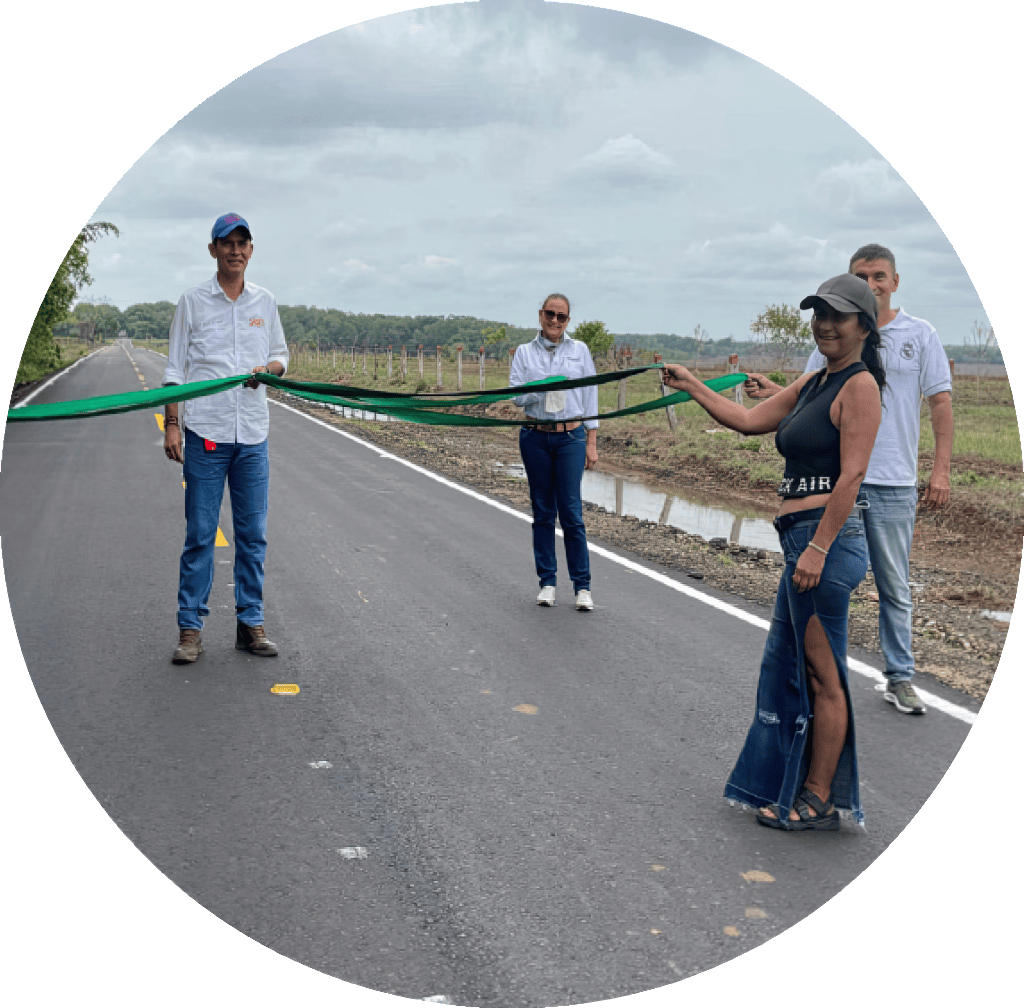
2
Contribute to the generation of economic and social benefits and ensure that the Stakeholder Groups perceive and recognize those as benefits generated by Ecopetrol and its Group with their presence in the territory.
How is the Material Element Managed?
A roadmap was defined based on diverse and inclusive participation through processes of dialogue and permanent consensus for the construction of long-term relationships that are respectful of human rights and that build trust in the communities and territorial entities.
The generation of value is evinced through the Company’s contribution to closing socio-economic gaps and it is managed via three (3) strategic options, namely:
1
Revitalization of local economies: encouragement of productive vocations, entrepreneurship, green economy, labor, local goods, and services; and construction of road and community infrastructure to promote trade, connectivity, and social cohesion.
2
Promotion of education: contribution to the goals of free and public national education, ensuring quality, coverage, and school retention, as well as the development and strengthening of a mindset and culture focused on innovation.
3
Access to basic public services such as energy, gas, and water: interventions to reduce inequality and enable a just energy transition.
The strategy incorporates the following areas:
Engagement: seeks to build long-term relationships of trust with the different stakeholders in the territory to favor the achievement of business objectives and contribute to sustainable development. In this sense, by promoting and partaking in different engagement opportunities, the Ecopetrol Group has established itself as one more player in the territory, with the objective of sharing knowledge, expectations, and requirements, disseminating information on the Company’s activities and results, participating in territorial planning, and building long-term visions for development.
Social Investment: this is the business practice to contribute to the sustainable development of the communities of interest to the Company, or of regions in the country where said contributions are in line with the corporate strategy.
ts purpose is to boost local growth to improve the quality of life of the population and reduce unsatisfied basic needs, thus consolidating high levels of trust in the territories of influence.
Physical Security: this area manages the measures to mitigate the impacts caused by events that affect the security and integrity of the people, projects, and infrastructure of Ecopetrol and its Group.
The Vice Presidency of Sustainable Development is the area in Ecopetrol that leverages the implementation of the Social Settings Management Strategy, and its operating costs29 for 2022 amounted to 71.2498 BCOP.
Short, Medium, and Long Term Goals and Projects
The goals for 2024, 2030, and 2040 are set in three (3) strategic
options: Dynamization of local economies, promotion of education, and access to public services.
| Key indicators | Short term by 2024 | Medium term by 2030 | Long term by 2040 | |
|---|---|---|---|---|
| Revitalization of local economies | Employment generation1
| 25,000 | 105,000 | 230,000 |
| 4,475 | 9,000 | 18,000 | ||
| 5,878 | 13,500 | 25,000 | ||
| 958 | 1,800 | 3,000 | ||
| Educación | Students benefitted
| Education | 1,252,000 | + 2,000,000 |
| 100% of the municipalities prioritized3 with training programs to reduce gas in education | ||||
| Access to utilities | Closing the gap in the coverage of utilities
| 1,329,704 | 1,900,000 | 2,400,000 |
| 34,448 | 75,000 | 150,000 | ||
2 Skills for the fourth industrial revolution.
3 LThe prioritized municipalities are updated according to the Update of Territorial Strategies (bi-annually).
4 Source: DANE.
Source: Vice Presidency of Sustainable Development.
Main Achievements in Managing the Local Development Roadmap
| Local Development Results | Unit of measurement | 2019 | 2020 | 2021 | 2022 |
|---|---|---|---|---|---|
| Benefited students | # | 62,461 | 202,707 | 192,623 | 128,258 |
| Jobs generated | # | 0 | 0 | 1,773 | 4,235 |
| Producer families benefited | # | 134 | 509 | 1,099 | 2,179 |
| Youth, entrepreneurs, and MSMEs benefited | # | 0 | 728 | 491 | 10,531 |
| Roads – tertiary network intervened | km | 204.93 | 237.37 | 62 | 204.18 |
| Inhabitants with access to drinking water | # | 6,598 | 6,351 | 21,725 | 763,436 |
| Users with access to fuel gas | # | 3,789 | 770 | 6,132 | 7,683 |
Monitoring the Effectiveness of the Measures Adopted
The effectiveness of the measures adopted to manage the impacts is measured using the instruments the business and emerging risk matrix, the internal control system, the balanced management board-TBG, and the performance contracts.
The environment monitoring and analytics process incorporates an information system to systematically and permanently record alarms and incidents and compare them between different periods of time.
In terms of social dialogue, the evolution of the consented sessions is monitored through alignment meetings with the participating areas and in compliance with the instructions for managing commitments with the Society, the Community, and the State (GDE-I-027) established by the OPC.
There is also an indicator that measures the number of permanent and voluntarily social dialogue agendas promoted, with the participation of Ecopetrol, in accordance with the goal established for each term.
| Priority | SDG | Description of alignment between the priority and business drivers | KPI Benefits for the business | KPI Benefits for Society or the Environment |
|---|---|---|---|---|
| Revitalization of the local economy: strengthen local productive vocations and economic recovery through inclusive rural development and entrepreneurship. Construction of roads and community infrastructure to promote trade and increase social cohesion. | Decent work and economic growth | Ecopetrol executes its operations in regions facing high levels of unsatisfied basic needs. Ecopetrol contributes to the diversification of the economy and the improvement of infrastructure in the territories where it operates and improves the quality of life of its neighbors. This, by strengthening the productive vocation of the population, promoting entrepreneurship, and building roads and community infrastructure. |
|
|
| Educational programs to improve the quality, retention, and coverage of education. | Quality education | The main components of Ecopetrol’s social investment strategy, included in the social strategy (the main instrument for Local Development), incorporates educational strengthening in the areas near the Company’s operations. | The 2022 survey results indicate that 74% of the “Society and Community” (SYC) Stakeholder Group and 83% of the “Local State” (EST) Stakeholder Group perceive Ecopetrol as a Company that makes social investments that contribute to territorial development and to improving the quality of life of its inhabitants. |
|
| Access to services (Water, Gas, and Public Sanitation) | Clean water and sanitation | Water is a vital resource for Ecopetrol’s operations, as it is for the communities in the areas where the Company operates. Ecopetrol’s integrated water management strategy aims to incorporate efficient water management into its value chain, projects, and operations, as a means of promoting sustainability and reducing environmental impacts and conflicts associated with water and access to it. Ecopetrol’s main objective, as an energy Company, is to consolidate itself in the sector and advance on the path towards the energy transition, the electrification of economies, and decarbonization. All this, with the firm commitment of producing accessible, reliable, and sustainable energy and fuel gas for more people, and promoting inclusive growth in the regions where the Company operates. |
| 11. Number of beneficiaries with access to services (water, gas, public sanitation). Water: In 2022, the Company improved the aqueduct in Norte de Santander, benefiting 763,436 inhabitants with access Gas: In 2022, 7,683 families benefited from access to natural gas. |
Lessons Learned and Incorporation into
the Company’s Operating Policies and Procedures
By managing the material element of Local Development and the dynamics and results of its strategic options, adjustments were incorporated into the policy documents based on the results and lessons learned. In 2022, the new version of Ecopetrol’s Procedure for the Management of Social Investment and Engagement Projects – GDE-P001 entered into force, as well as the Guide for the Construction of Ecopetrol’s Sustainable Development Portfolio of Strategic and Mandatory Investments, which are regulatory documents that have a direct relationship with the management of Local Development.
How are Stakeholders Involved in
Taking Action to Manage Local Development?
A roadmap was defined based on the diverse and inclusive participation of communities and territorial entities, through permanent dialogue and conciliation processes for the construction of long-term relationships that respect human rights and build trust. This democratic participation seeks to build joint approaches for the territory, reach agreements on social investment programs, and monitor the progress of implementation through technical taskforces and local dialogue.
The social dialogue approach involves the Stakeholder Groups in the territory, in pursuit of dynamic, inclusive, diverse, broad, and democratic processes.
Ecopetrol recognizes and respects diversity, and interacts with ethnic groups to build constructive relationships, considering the dynamics and processes between these communities, their organizations, and the State, with emphasis on the regulations that could affect their rights.

